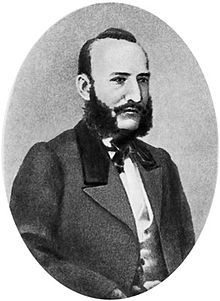User:Amayarz/sandbox
History[edit]
Appearing in the latter half of the eighteenth century, fairy tales became widely popular as they spread throughout the country. Literature was considered an important factor in the education of Russian children who were meant to grow from the moral lessons in the tales. During the 18th Century Romanticism period, poets such as Alexander Pushkin and Pyotr Ershov began to define the Russian folk spirit with their stories. Throughout the 1860s, despite the rise of Realism, fairy tales still remained a beloved source of literature which drew inspiration from writers such as Hans Christian Andersen.[1] The messages in the fairy tales began to take a different shape once Joseph Stalin rose to power under the Communist movement. [2]

The Communism Effect[edit]
Fairy tales were thought to have a strong influence over children which is why Joseph Stalin decided to place restrictions upon the literature distributed under his rule. The tales created in the mid 1900s were used to impose Socialist beliefs and values as seen in numerous popular stories. [2] In comparison to stories from past centuries, fairy tales in the USSR had taken a more modern spin as seen in tales such as in Anatoliy Mityaev's Grishka and the Astronaut. Past tales such as Alexander Afanasyev's The Midnight Dance involved nobility and focused on romance.[3] Grishka and the Astronaut, though, examines modern Russian's passion to travel through space as seen in reality with the Space Race between Russia and the United States. [4] The new tales included a focus on innovations and inventions that could help characters in place of magic which was often used as a device in past stories.
 | This is a user sandbox of Amayarz. You can use it for testing or practicing edits. This is not the sandbox where you should draft your assigned article for a dashboard.wikiedu.org course. To find the right sandbox for your assignment, visit your Dashboard course page and follow the Sandbox Draft link for your assigned article in the My Articles section. |
- ^ Hellman, Ben. Fairy Tales and True Stories : the History of Russian Literature for Children and Young People (1574-2010). Brill, 2013.
- ^ a b Oinas, Felix J. “Folklore and Politics in the Soviet Union.” Slavic Review, vol. 32, no. 1, 1973, pp. 45–58. JSTOR, www.jstor.org/stable/2494072.
- ^ Afanasyev, Alexander. “The Midnight Dance.” The Shoes That Were Danced to Pieces, 1855, www.pitt.edu/~dash/type0306.html.
- ^ Mityayev, Anatoli. Grishka and the Astronaut. Translated by Ronald Vroon, Progress, 1981.
